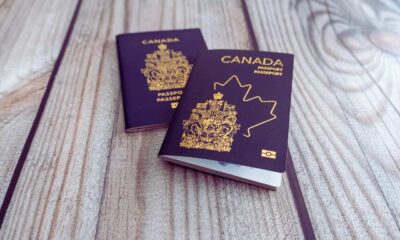Immigration Announcement
Taking a Citizenship Oath in Canada Will Be Simplified Soon

Since 1947, taking an oath has been a prerequisite for citizenship in Canada. By taking an oath, potential citizens make a solemn commitment to uphold Canadian law and carry out their civic obligations. At virtual or physical ceremonies, new citizens must typically swear or confirm the oath in front of a citizenship judge. Typically, these events are arranged for weekdays and throughout the working day.
According to the immigration departments, many new citizens are required to miss time from work in order to attend citizenship ceremonies, and this time is frequently unpaid by employers. The proposed changes to the Citizenship Rules, according to the IRCC, would give the citizenship oath more latitude. A citizenship judge may no longer be required to witness future Canadian citizens taking the oath on their own. The proposed regulation will begin from June 2023.
As per the proposed rules, the Immigration Minister would have wide discretion to permit people to take the oath in alternative ways, not necessarily in front of an authorised person. Moreover, customers might take the oath online in a secure manner. They might sign a written attestation online without a witness by using this self-administration of the oath taking procedure. As a result, this flexibility would enhance client service, according to IRCC.
The main goal of the proposed adjustment is to speed up application processing and decrease backlogs. Also, the changes could cut the current 24-month processing period for citizenship to 21 months by up to 3 months.
Canada’s Current Processing Backlogs Status for Citizenship
Thousands of people petition for citizenship in Canada each year. The COVID-19 epidemic and increased demand have caused application processing times to exceed the service standard of 12 months.
Nevertheless, it is anticipated that Canada will welcome 500,000 new permanent residents by 2025. According to the Regulatory Impact Analysis Statement for the proposed change, there are now 358,000 citizenship applications on file. With the influx of new permanent residents, this is anticipated to increase, and processing times will probably be impacted.
IRCC is on the path to handle a record 300,000 new citizenship applications during the 2022–2023 budget year as a consequence of these activities, up from 34% during the 2021–2022 fiscal year.
What is the Citizenship Eligibility Criteria in Canada?
To be eligible for citizenship, you must:
- be a permanent resident;
- file your taxes;
- fulfil other requirements before you may become a citizen of Canada;
- passing the citizenship test for Canada (for age group 18 and 54);
- Show off your language abilities (for age group 18 and 54);
- meet the requirements for physical presence in Canada.
What are the Chances of IRCC Waiving Citizenship Application Fees?
Sean Fraser described the fee waiver in his mandate letter prior to the COVID-19. The mandate letter, a crucial document for immigration policy, specifies the objectives the minister is expected to follow while in office.
Fraser also stated that the IRCC has not set a deadline for waiving application expenses for citizenship. Because the decision to remove citizenship fees is not within the IRCC’s purview, a date cannot be specified.


























